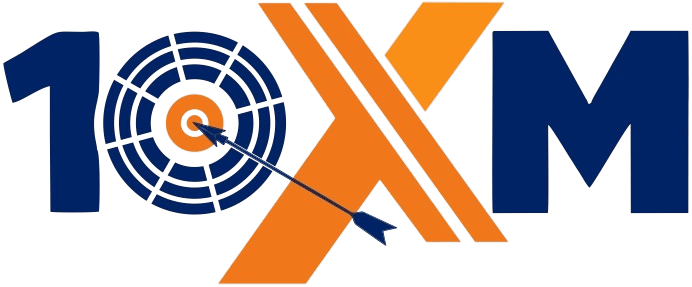Tax Optimization for Businesses in the Middle East: A Complete Guide

The Middle East is a thriving business hub, attracting entrepreneurs and multinational corporations with its strategic location, tax-friendly environment, and investor-friendly policies. However, to maximize profitability, businesses must navigate the region’s tax landscape efficiently. Smart tax planning can mean the difference between high returns and unnecessary financial strain. Let’s explore how to set up a business in the Middle East while optimizing taxes effectively.
Why the Middle East is a Business Hub
Strategic Location and Global Connectivity
Sitting at the crossroads of Europe, Asia, and Africa, the Middle East offers unparalleled access to global markets. Major cities like Dubai, Riyadh, and Doha are well-connected through world-class airports and seaports, making trade seamless.
Business-Friendly Policies and Regulations
Governments across the region actively encourage foreign investments through tax incentives, simplified business registration processes, and financial grants. Free zones in the UAE, for instance, provide 100% foreign ownership and repatriation of profits.
Access to a Skilled Workforce and Diverse Markets
The Middle East attracts a multinational workforce, ensuring businesses can find skilled professionals across various industries. Moreover, the region’s economic diversity opens doors to numerous business opportunities, from tech startups to manufacturing and logistics.
Choosing the Right Business Structure
Selecting the right business structure is a crucial step in maximizing tax efficiency and ensuring regulatory compliance. The choice between Free Zone, Mainland, and Offshore setups depends on your business goals, operational needs, and tax considerations.
Free Zone vs. Mainland vs. Offshore
- Free Zones: Ideal for businesses seeking tax exemptions and full ownership. However, operations within the local market are restricted.
- Mainland: Allows trading within the country and globally but comes with higher regulatory requirements.
- Offshore: Best for holding companies, wealth management, and international trade with minimal tax obligations.
Legal Considerations and Licensing
Each business type requires specific licensing, whether commercial, industrial, or professional. Understanding these legal requirements upfront ensures smooth operations and compliance.
Understanding Taxation in the Middle East
Overview of Tax Laws in Key Countries
The Middle East offers a diverse tax landscape, with some countries maintaining low or zero corporate tax rates while others have introduced structured taxation. Here’s a quick overview:
- United Arab Emirates (UAE): Historically a tax-free haven, the UAE now imposes a 9% corporate tax on certain businesses while free zone entities can still benefit from exemptions if they meet specific criteria. A 5% VAT is applicable across most sectors.
- Saudi Arabia: One of the more regulated tax environments in the region, Saudi Arabia imposes a 20% corporate tax on foreign-owned businesses, along with Zakat (a religious wealth tax) for local entities. VAT is set at 15%, the highest in the GCC.
- Qatar: Offers a 10% corporate tax on foreign entities, with free zones providing tax exemptions. VAT implementation has been delayed but is expected in the near future.
- Bahrain: A business-friendly nation with no corporate tax for most industries, except for oil and gas companies. It has a 5% VAT.
- Oman: Introduced a 15% corporate tax, with exemptions available for free zone businesses. VAT is set at 5%.
- Kuwait: Does not impose corporate tax on local businesses but applies a 15% corporate tax on foreign enterprises. It has yet to implement VAT.
Value-Added Tax (VAT) in the Region
VAT is now a standard across the GCC, with rates generally at 5%. However, some sectors, such as healthcare and education, enjoy exemptions.
Corporate Tax Implications
With new corporate tax laws emerging, businesses must align their tax strategies accordingly. Free zone entities often enjoy tax-free benefits, but compliance is essential to maintain these perks.
Tax Optimization Strategies
Leveraging Free Zones for Tax Benefits
Setting up in a free zone allows businesses to operate with minimal tax liabilities, full ownership, and easy profit repatriation. Selecting the right free zone based on industry focus is crucial.
Structuring Business Operations Efficiently
Proper structuring can minimize tax burdens. For instance, using a holding company to manage multiple business entities can create tax efficiencies.
Transfer Pricing and Profit Allocation
To avoid double taxation, businesses must establish fair transfer pricing policies. This ensures compliance with international tax regulations while optimizing tax efficiency.
Compliance and Risk Management
Adhering to Economic Substance Regulations (ESR)
Countries like the UAE have introduced ESR to prevent tax evasion. Businesses must prove they have genuine economic activity within their registered jurisdiction.
Avoiding Tax Penalties and Fines
Failure to comply with tax regulations can result in hefty fines. Maintaining accurate financial records and timely tax filings is critical.
Keeping Up with Regulatory Changes
Tax laws in the Middle East are evolving. Businesses should stay updated through legal counsel or tax advisors to ensure continued compliance.
Benefits of Professional Tax Advisory Services
How Experts Can Help Optimize Tax Structures
Partnering with a professional tax advisory firm like 10xM Consulting can be a game-changer for businesses looking to optimize their tax structures in the Middle East. With deep expertise in regional tax regulations and business structuring, 10xM Consulting provides tailored solutions that help companies legally minimize tax liabilities while maximizing profitability.
Navigating Complex Tax Laws and Regulations
Middle Eastern tax laws are constantly evolving, making compliance a challenge for businesses. 10xM Consulting stays ahead of regulatory changes, ensuring that businesses remain compliant while taking advantage of tax-saving opportunities. Their expert guidance helps companies avoid costly penalties, streamline operations, and achieve long-term financial efficiency.
About 10xM Consulting
10xM Consulting is a leading expert in business setup and tax optimization in the Middle East. With a deep understanding of regional tax laws and business structures, 10xM helps companies navigate complex regulations, maximize tax efficiency, and ensure long-term compliance. Whether you're launching a startup or expanding your enterprise, 10xM provides tailored solutions that align with your business goals.



